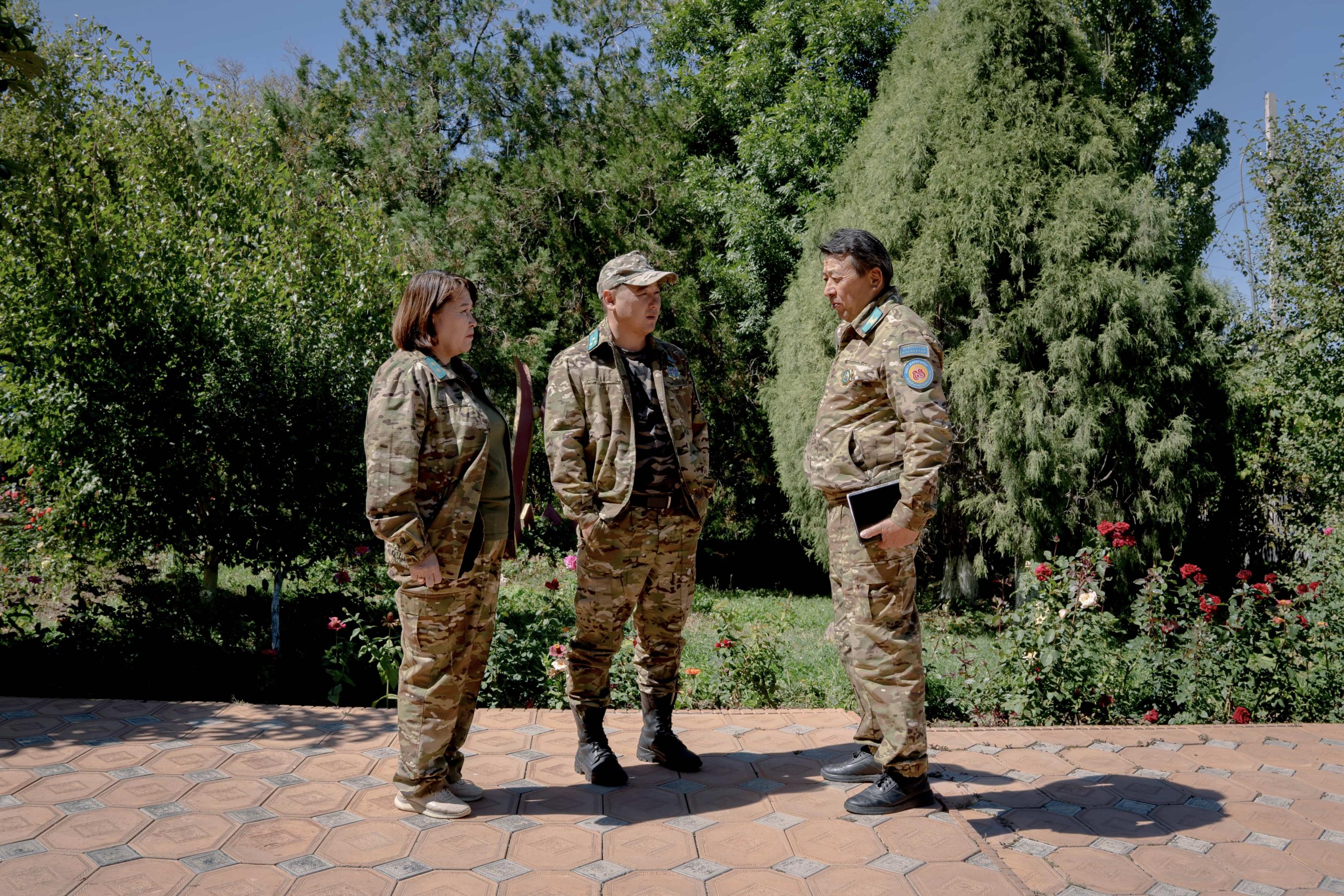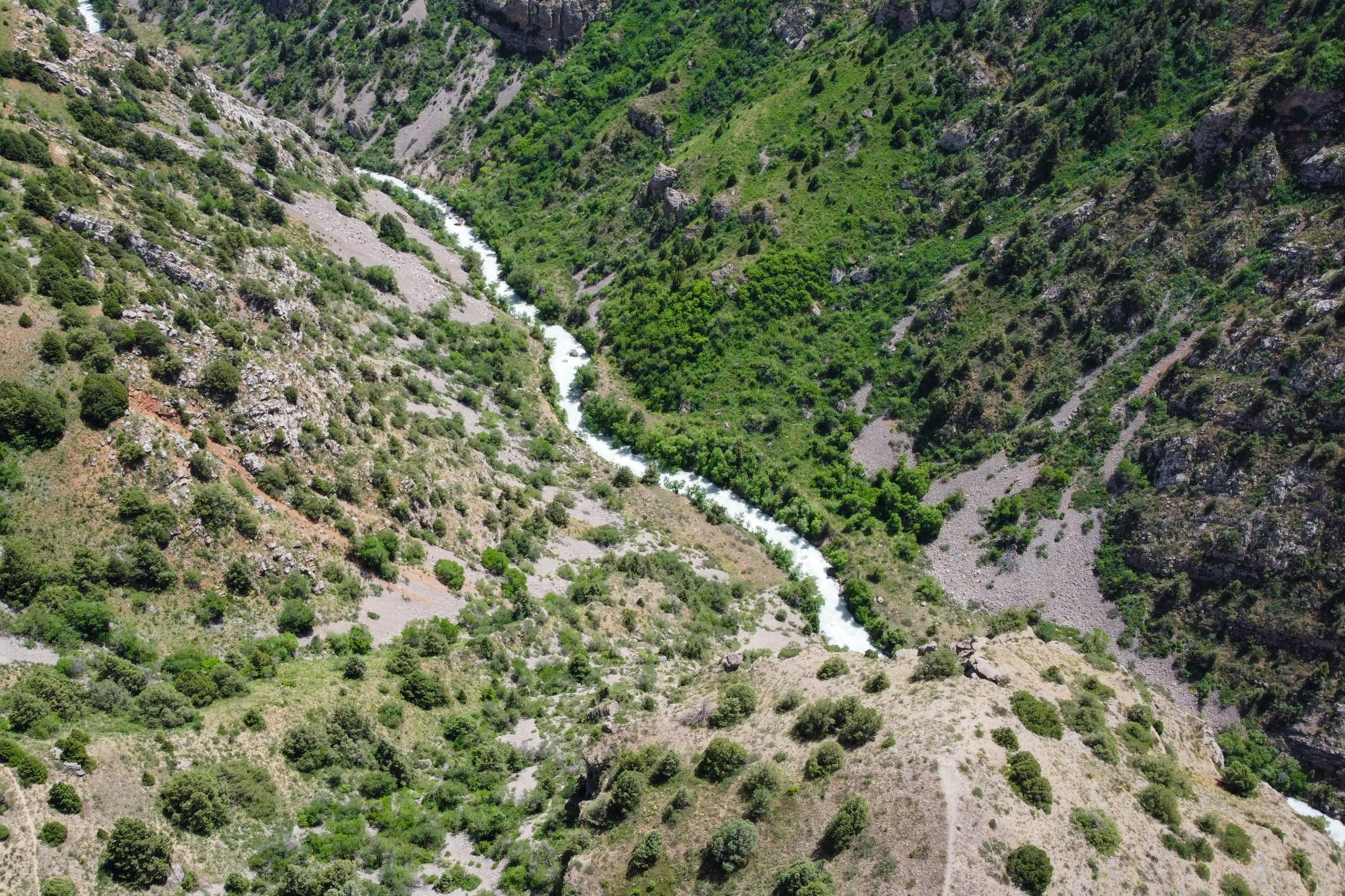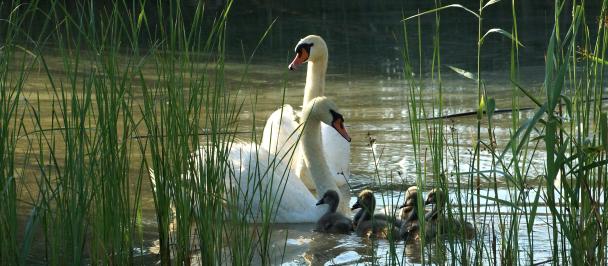Boosting tourism in Kazakhstan's oldest Nature Reserve
September 26, 2024
Elmira Jumanova heads the Department of Environmental Education and Tourism in the Aksu-Zhabagli Reserve since 2004
Elmira Jumanova has been working in Kazakhstan's oldest nature reserve for more than 20 years. As head of the Department of Environmental Education and Tourism, she welcomes guests at the Visitor Centre, leads tourists along ecological trails while describing the unique wildlife of the Western Tian Shan.
Elmira recalls the moment in 2003 when she and her husband moved from Uzbekistan to Zhabagly, a small village in South Kazakhstan to build a new life. Serendipitously, their "new life" started with the Aksu-Zhabagly Nature Reserve, where the Jumanovs have been working since 2004. Elmira works in tourism and education, her husband, Smatulla, was promoted from nature protection inspector to deputy director for scientific work.
"Kazakhstan is our historical motherland, so we decided to move here. My husband Smatulla dreamed of working as an inspector, and thanks to his dream, we both work in the Aksu-Zhabagly Reserve," Elmira says.
Elmira recalls that relocating and their first year in the new place were not easy. The Jumanovs had to organize their household, raise two daughters and work to provide for themselves and their children. Initially, Elmira's job did not work out. Despite having a teachings diploma, she couldn't find a job as a schoolteacher and no other work could be found in the village.

Elmira's husband, Smatulla Jumanov, started working in the reserve as an inspector and now is deputy director of scientific work
Development of tourism opens new vistas
When the Aksu-Zhabagly Nature Reserve announced the opening of a tourism and environmental education department, Elmira immediately applied for the position. The primary task of the department was to develop various documentation, including tourist routes, instructions for guides and lectures for students.
Elmira had the knowledge and teaching experience required, so when she joined the reserve she worked a guide in the new department, where she worked as a guide. Under the guidance of Dina Almatova, who headed the new department in 2004, Elmira and her colleagues organized tourism work in the reserve from ground zero. The new department developed some key documents including excursion talks offered by the reserve's Visitor Centre, which also in 2004, with the support of the United Nations Development Programme (UNDP) in Kazakhstan.
"I've enjoyed working in the reserve from the first day. I quickly got along with the team, and I enjoy working with children. Twenty years flew by like a single day, probably because I really love my job," Elmira said.
The Visitor Centre of the Aksu-Zhabagly Nature Reserve opened in 2004 with UNDP support
Elmira has five employees in her department, professional tour guides who lead tourists along nature trails. The tourist season in the reserve usually lasts from June to November, a time when the 10 trails and routes in the reserve are really in demand.
Goal of light footprint along trails protects reserve's biodiversity
The reserve has a strict policy to protect nature. Tourists are prohibited from entering the trails without professional guides. Unlike national parks, where the tourist flow is nearly uncontrolled and hotel-restaurant businesses have a strong presence, such businesses are prohibited in the reserves and the number of tourists strictly regulated. According to the guidelines for ecological routes, the recreational load on each trail is six people per group, four groups can walk along it per week, i.e. no more than 24 tourists per week. Elmira strictly monitors compliance with these rules, discusses the trails with the guides, prepares a visitor plan and arranges the distribution of tourist groups. Controlling tourist numbers helps to preserve the ecology and wildlife of the reserve and to reduce the harm caused by tourist activity.
According to Elmira, sometimes misunderstandings arise among visitors, especially with those travelling from afar. She asks tourists to respect established rules and advises them to submit an application form before visiting.
"Our aim is to avoid mass tourism in the nature reserve. Above all, we protect and preserve the unique nature of the Western Tian Shan, which is important for future generations," says Elmira.
The Aksu-Zhabagly Nature Reserve is in fact unique. Due to the ecosystems and landscapes of the Western Tian Shan, it is home to rare and endemic animal species, such as the European glass lizard, white-winged woodpecker, beech marten, snow leopard, Menzaits marmot and argali. The flora is as rich and includes such Red List species as Tianshan ash, Sivers apple tree, Kaufman tulip and tulip Greig. The latter is the symbol of the Aksu-Zhabagly Reserve. Both tulip species are ancestors of all such species, including Dutch tulips, and have a great value for world biodiversity.
The wildlife of Alsu-Zhabagly reserve has a multitude of rare species of birds and plants
UNDP does key conservation work for wildlife...
Recognizing the significance of the Aksu-Zhabagly reserve for the preservation of wildlife in Kazakhstan, UNDP has been providing support for many years aimed at improving the conservation system by strengthening the personnel and technical capacity of the Reserve. The Reserve received firefighting equipment, transportation facilities, drones, a SMART-patrolling system, as well as camera traps and thermal imagers, which help specialists to obtain latest data about wildlife. Due to the installed camera traps, a snow leopard was recorded for the first time in the Aksu-Zhabagly reserve at an altitude of 2,900 metres above sea level.
The Aksu-Zhabagly Nature Reserve, the first reserve in Kazakhstan, was founded in 1926. Thanks to its rich biodiversity and ecosystems and to the presence of rare species of flora and fauna, the reserve is included in the UNESCO World Network of Biosphere Reserves. Home to 48 percent of all bird species and 72.5 percent of region's vertebrates makes it especially valuable to ornithologists and other scientists.
...while ecological tourism gets underway and trails open
Elmira does not often lead excursions along ecological trails herself as she spends most of her time at the reserve's Visitor Centre, where she greets travellers. After the tourist season is over, her department is busy preparing annual reports and planning for the next season. From February to March Elmira organizes environmental education lessons for school students, and from April to May the reserve is focused on the March of Parks and environmental campaigns.
In two decades the reserve has managed to build a sustainable base to develop ecological tourism. The main flow of tourists comes from two cities – Shymkent and Taraz, but in recent years the number of visitors from Almaty and other regions of Kazakhstan has increased.
In Zhabagly village tourists are mainly hosted by two guesthouses, which cooperate with the reserve. Foreign tourists are also becoming increasingly interested in the Western Tian Shan wildlife. For instance, out of 2,500 tourists visiting the reserve in 2023, 700 were international travellers.
Zhabagly village is several kilometres from the Aksu-Zhabagly Reserve
The region has great potential for the development of ecological tourism. Guest houses in the village, operated by locals, can host up to 30 tourists daily. Local cuisine, which is a "calling card" of the southern Kazakhstan, is especially popular among tourists. Locals produce various products: sour-milk drink from horse milk (kymys), steamed horse milk (saumal), cottage cheese and other products. Horse riding is popular among visitors.
Elmira regrets that national handicrafts and sewing are not a tradition in this region. She thinks the products of local craftsmen, created in national style, could be in high demand among both national and international travellers. This provide locals with additional income positively impacting development in the region.

Aksu-Zhabagly Nature Reserve, founded din 1926, is the first protected area in Kazakhstan
Now expanding network of qualified experts is order of the day
As regards her work, Elmira points to a shortage of qualified specialists in the network of specially protected natural areas. Although work conditions in the forestry sector have improved in recent years, the human resource potential needs constant growth and support. Elmira thinks one solution would be to have an exchange of experience between national parks and nature reserves.
"Improving the qualification of specialists in nature protection is constant, complex work. We need to promote the exchange of practical experience between natural protected areas, creating conditions and opportunities to visit other national parks and reserves both in Kazakhstan and in other countries, so specialists can share their experiences and adopt the knowledge and experience of their colleagues," says Elmira.
Aziza is a professional guide and conducts excursions in the reserve for foreign tourists
Aziza works with Elmira in the same department. She conducts excursions in English for foreign tourists, manages the Reserve's social networks and website and responds to journalists' inquiries. Online platforms help the reserve to provide information about flora and fauna and to provide latest news to upcoming visitors.
Promoting women in the nature reserve service is also a priority
The Aksu-Zhabagly Nature Reserve has 83 employees, with only 11 women. Elmira notes that women are insufficiently represented in the PAs system points to the need to break down gender stereotypes in the forestry sector. The Reserve's history has many examples of women successfully performing their professional duties. Nurania Karmysheva, in charge of the Aksu-Zhabagly Reserve from 1945 to 1951, is one such example.
A total of 11 women hold various jobs at the reserve
"Once, when a fire erupted in the reserve, I helped to quell the disaster. I spent three days in a remote area and coordinated the communications between the central office and inspectors by radio. We all worked very effectively then. I really believe that working in the reserve should not be divided into male and female. We women love nature like our own child," she says.
Meanwhile, UNDP solar power stations boost conditions in remote areas of reserve
A noteworthy point – UNDP has installed solar-wind stations in the remote areas of the reserve, which provide inspectors with 24-hour electricity enabling the use of radio transmitters to provide updates on situations in remote areas. This has contributed to improving the living conditions of government inspectors and their families residing in remote areas.
Talking about her work, Elmira is grateful for the opportunities that the Aksu-Zhabagly Nature Reserve opened up for her, helping to unlock her professional potential, to raise her two daughters and to do what she loves – protecting the nature of her homeland.
The reserve's policies show that tourism can be nature-positive.


 Locations
Locations




